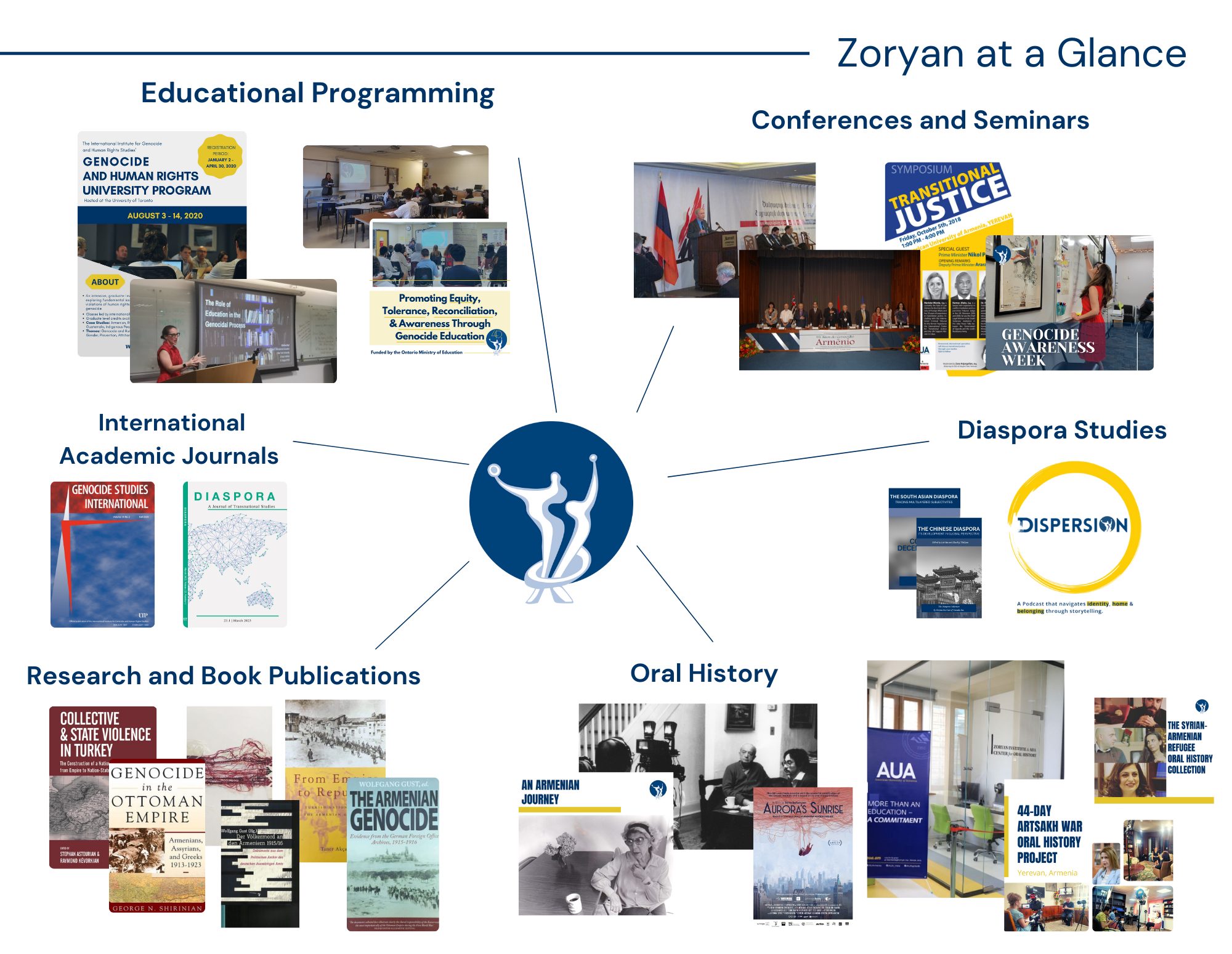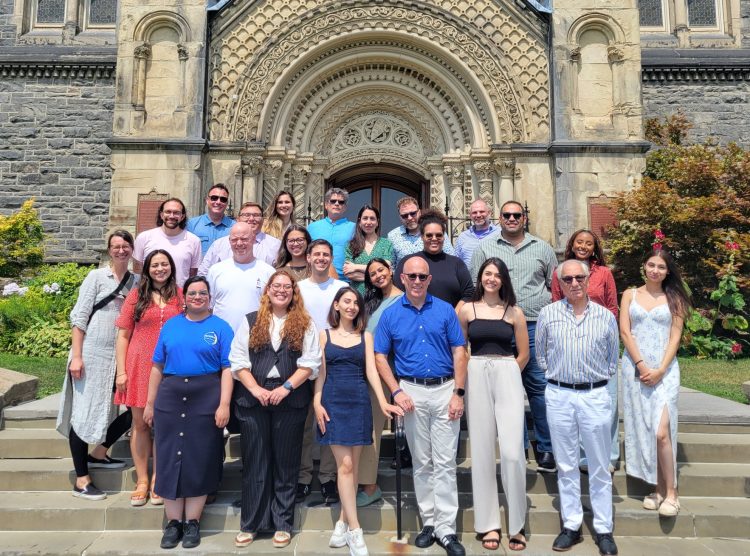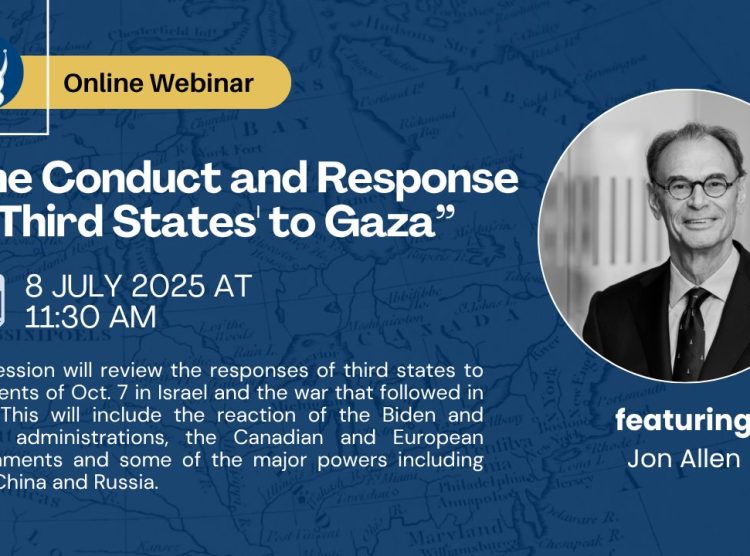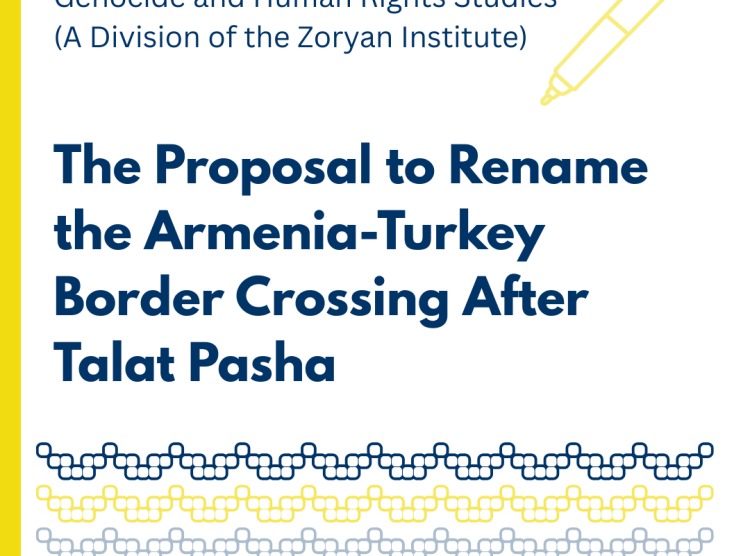May 16th, 2025: Dr. Adam Muller, Director of Peace and Conflict Studies at the University of Manitoba has emphasized the significance of critical education in his powerful and timely article, “Not All Is Lost in the Fight Against Genocide and Injustice,” recently published in the Massis Post (read here). The editorial addresses the recent closure of Concordia University’s Montreal Institute for Genocide and Human Rights Studies (MIGS) and offers a broader reflection on the urgent need for continued education, research, and advocacy in the field of genocide prevention.
His article speaks to the larger crisis affecting scholarly and advocacy institutions committed to this field: mounting financial pressures, ideological divisions, and the shrinking space for critical, independent inquiry. At a time when public discourse around genocide and mass atrocity is increasingly polarized and when academic institutions struggle to uphold their commitments to truth and justice, Dr. Muller’s piece is a sobering reminder of what is at stake and why this work on preventative education must continue.

Pictured above: Dr. Adam Muller, Director of Peace and Conflict Studies at uManitoba
He writes: “… I’ve long been aware of the positive impact of para-academic organizations like MIGS on genocide studies research, as well as on (not unrelated) efforts at genocide and mass atrocity prevention. Such incubators and sponsors of collaborative research, teaching, and advocacy do important work stimulating, consolidating, and disseminating knowledge about mass atrocity crimes and human rights violations. Their outputs typically address multiple audiences, from schoolchildren to government functionaries and elected officials, always with a view to fostering coalitions of motivated and well-informed individuals deeply committed to joining with others to care for victims of violence, hold perpetrators to account, and prevent the recurrence of future atrocities.”
Dr. Muller continues, “While MIGS is no longer able to continue this vital work, all is not lost. For Canada is blest to be home to several similar organizations making an outsize contribution to securing local and global peace and human security. One of the most significant of these is the Zoryan Institute, whose programming extends in multiple directions to educate on a broad range of contemporary and historical genocides and human rights struggles… Without the track record and ongoing efforts of organizations like MIGS and the Zoryan Institute, we risk further (and more awful) violent conflicts and confusions. Those troubled by these outcomes, and possessing the means to do so, would do well to consider directing their financial and other resources to agencies such as Zoryan. Only by working with and through them can we hope to ensure that, as Holocaust scholar Hans Kellner once put it, the “Never Again” of genocide is now.”

A diagram of the Zoryan Institute's various mediums for educational programming and research.
Dr. Muller’s perspective underscores the critical role that the Zoryan Institute plays in advancing peace and human security through education. We risk deeper global instability and the erosion of meaningful genocide prevention if not for the continued work committed to researching the forces and factors that characterize violations of human rights and in extreme cases, genocide. At a time when independent institutions face increasing pressure due to the polarization of ongoing conflicts, his endorsement serves as both a recognition of ZI’s global impact and a call to action to support its education and research.
Dr. Muller’s perspective underscores the critical role that ZI plays in advancing peace and human security through education. We risk deeper global instability and the erosion of meaningful genocide prevention if not for the continued work committed to researching the forces and factors that characterize violations of human rights and in extreme cases, genocide. At a time when independent institutions face increasing pressure due to the polarization of ongoing conflicts, his endorsement serves as both a recognition of ZI’s global impact and a call to action to support its education and research.






